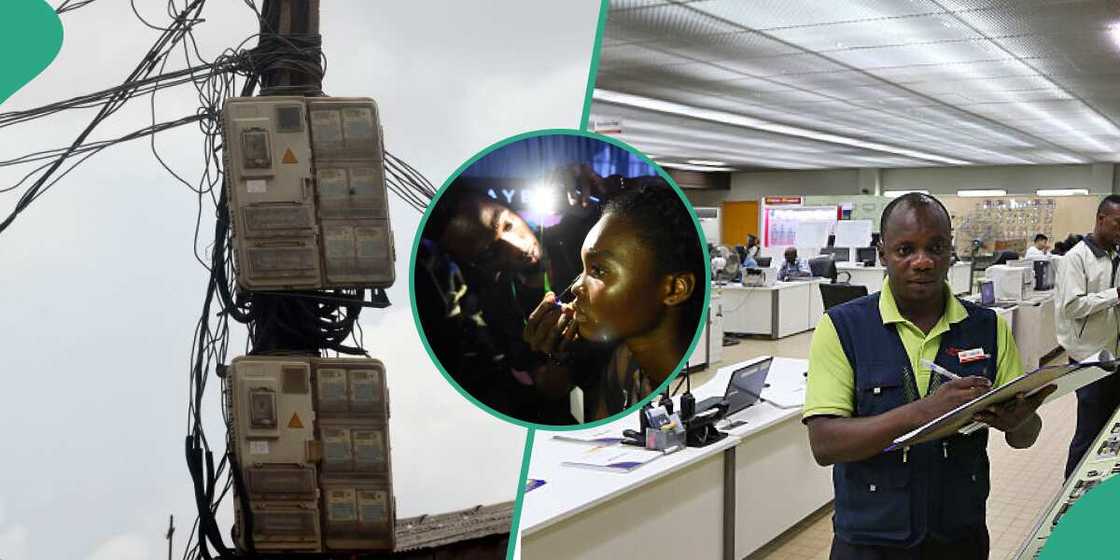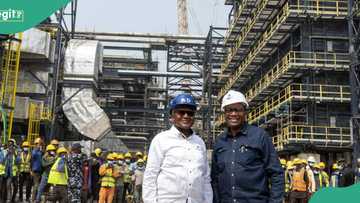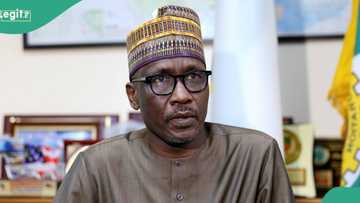Hike in Electricity Tariff Looms as FG Increases Gas Price for Power Sector by 11 Per Cent
- The federal government has announced an increase in the price of gas to power plants across the country
- The Nigerian Midstream and Downstream Petroleum Regulatory Authority (NMDPRA) said the move aligns with its powers
- The move comes as power plants have reported low gas supply as a reason for poor supply in recent times
PAY ATTENTION: The 2024 Business Leaders Awards Present Entrepreneurs that Change Nigeria for the Better. Check out their Stories!
Legit.ng’s Pascal Oparada has reported on tech, energy, stocks, investment and the economy for over a decade.
The Nigerian government has announced an increase in the wholesale price of gas being suppliedto power plants by 11% from $2.18 per million British Thermal Unit (MMBTU) to $2.42 per MMBtu.
Power firms have complained of low supply as gas companies reduced supply in January 2024, following a $1.2 billion debt.

Source: Getty Images
The federal government reportedly intervened by paying $120 million in March 2024.

Read also
Expert speaks on future of naira, explains why commodity prices are not reducing despite naira gain
PAY ATTENTION: Share your outstanding story with our editors! Please reach us through info@corp.legit.ng!
FG says the move aligns with PIA
According to a notice issued by the Chief Executive of the Nigerian Midstream and Downstream Petroleum Regulatory Authority (NMDPRA), Farouk Ahmed, the government raised the commercial wholesale gas price from $2.42/MMBtu to $2.92/MMBtu.
Leadership reports that the NMDPRA said the Petroleum Industry Act of 2021 authorised it to set domestic base prices for the local market.
NMDPRA said:
“In Ine with Section 167, the Third and Fourth Schedule of the PIA 2021, the Nigerian Midstream & Downstream Petroleum Regulatory Authority (NMDPRA) is mandated to determine the Domestic Base Price (DBP) and the marketable wholesale price of natural gas supplied to the strategic sectors.”
A hike in electricity tariff is likely as IE issues notice
Analysts say the new development will impact the cost of electricity as the power companies may seek an upward review of tariffs.
The development comes as one of the electricity distribution companies, Ikeja Electric, blamed the current power outages on the load restrictions of its various transmission centres.
Reports say that the company said in a circular that it has led to the current challenge its customers face.
Load restrictions refer to limitations on the amount of electrical power that can be transferred via the transmission network.
What is load restriction?
The restrictions can be caused by serval factors such as maintenance work, system upgrades, or to prevent overloading, which might lead to equipment failure or outages.
Last week, Nigeria was in total darkness following the collapse of the national grid, which Osogbo, Osun State, oversees.
This latest incident has left countless households and enterprises without electricity.
This incident represents the fourth of such collapses within the initial three months, exacerbating the enduring issues afflicting Nigeria's power industry.
The collapse reportedly occurred around 4:32 pm on Thursday, March 28. Reports from multiple distribution companies across Nigeria's 36 states indicate that their feeders became inactive, leading to extensive power outages nationwide.
Elumelu explains why Nigeria is experiencing poor electricity
Legit.ng previously reported that Tony Elumelu, the Transnational Corporation (Transcorp) chairman, has urged the federal government to restructure the electricity industry and sell transmission lines to boost the country's flagging economy.
He stated in a Bloomberg interview that the industry's growth could be improved by a lack of liquidity in the electrical market and inadequate transmission lines.
Elumelu, also the chairman of the United Bank for Africa (UBA), said that a bad energy supply causes a low production level in the nation.
PAY ATTENTION: Donate to Legit Charity on Patreon. Your support matters!
Source: Legit.ng



